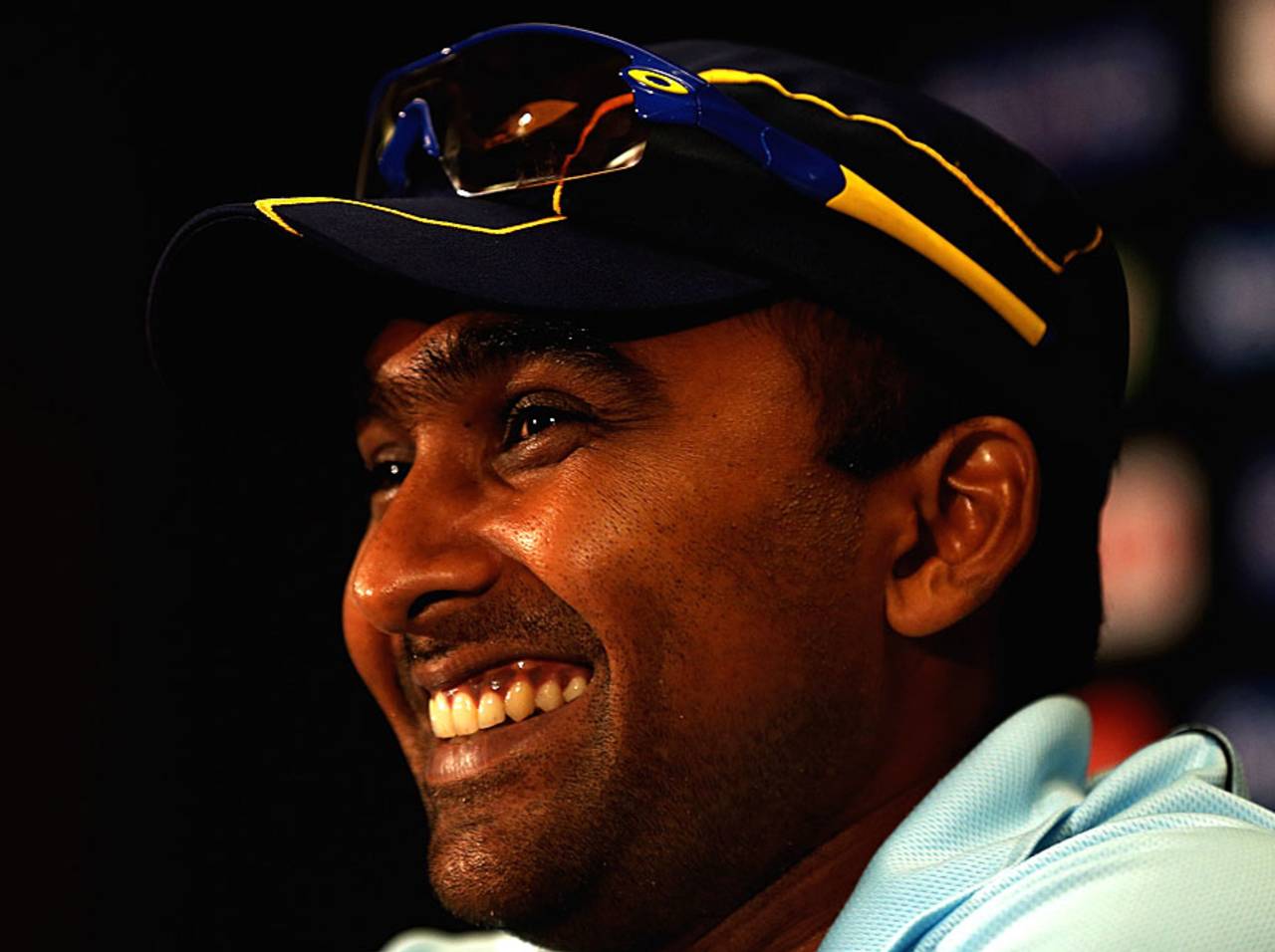A gentle pall of sadness hangs over the cricket lovers of my country.
Mahela Jayawardene, that prince of batsmen, has announced his retirement from Test cricket. We knew this day would come, but like with the passing of a venerable patriarch, anticipated with a mixture of dread and inevitability, it brings a diminution of the spirits. In the rich firmament of Sri Lankan cricket, Mahela is one of the brightest stars, taking his place with the very best our nation has produced: Aravinda de Silva, Muttiah Muralitharan, and his old comrade in arms Kumar Sangakkara.
The name DPMD Jayawardene has been a source of calm and comfort in the Sri Lankan middle order for the last 17 years, like the reassuring presence of a much-loved uncle. Mahela has been playing Test cricket for so long, his career overlaps those of Mohammad Azharuddin, Inzamam-ul-Haq, and Mark Waugh, notable artists all. Like them, he is a purist's batsman, a rapier among the blunderbusses. He has always conjured up a past era, and not simply because of the longevity of his career. In the effortless elegance of his strokeplay, in his innate humility and grace, he most closely resembles those two great gentlemen of South Asian cricket, Rahul Dravid and VVS Laxman. While the three of them bestrode the cricketing turf, it felt as if we had a connection to that romanticised age long before the DRS and T20. With Mahela's retirement, that link is broken.
Mahela made his debut a year after Sri Lanka's breakthrough World Cup win, in a team packed with batting talent. Aravinda in his pomp, Sanath Jayasuriya, Arjuna Ranatunga, Marvan Atapattu. Add Murali and Chaminda Vaas, it's a veritable roll call of Sri Lankan luminaries, a formidable team for a 20-year-old to force his way into. But Mahela was a prodigious and precocious talent. A fixture in his school first XI from the age of 14, he has gone on to compile 11,493 Test runs, which leaves him sixth in the all-time standings, with 33 hundreds and a triple-century to his name. His razor-sharp reflexes have also pouched 197 outfield catches, a tally beaten only by Dravid and Jacques Kallis.
The raw figures, impressive as they are, do not tell his story. Much has been written about his classical cover drives, his impossibly late cuts, his sheer inventiveness. Just as important for Sri Lankan cricket has been his influence as a strategist and leader. Schoolboy prodigy turned elder statesman, Mahela has unquestionably been one of the great cricketers of his generation. But for all that undeniable achievement, it is his warmth and humanity that mark him out. Perhaps this is unsurprising in one who was truly of the war generation. He grew up in the dark times of Colombo bus bombings, when, in his own words, "we went to school every day not knowing whether we would come back". He saw a fellow schoolboy cricketer lose both parents and return to cricket a few weeks later. Most of all, he had to contend with his brother Dhishal's death from cancer as a teenager. It is hard to imagine more grounding experiences.
His cricketing career has coincided with immense tragic events off the field. In addition to the civil war, there has been the 2004 tsunami and the Lahore terrorist attack, during which, when bullets ricocheted around him, Mahela thought he would die on the floor of a bus in a foreign land. His early experiences gave him the resilience to overcome these horrors, and the capacity to see beyond cricket. Along with Murali and Sangakkara, he was heavily involved in the post-tsunami relief effort. This triumvirate of great Sri Lankans remains committed to charitable endeavours, including, in Mahela's case, the HOPE Cancer Hospital, a tribute to his brother's memory.
When I think of Mahela, I think of artistry and steel. No one plays the late cut more delicately, with greater precision or finesse. But there is more to Mahela than pretty batsmanship. He could show fierce determination, as he demonstrated when overcoming a disappointing run of form to score a century in a losing cause in the
2011 World Cup final. We all have our favourite Mahela memories. His century
at Lord's in 2006, while battling to save the match. His century against South Africa at the PSS
in Colombo, chasing a fourth-innings win. That catch
in Galle, which gave Murali his 800th wicket.
My most treasured memories reveal glimpses of the man himself. In an interview before the 2007 World Cup final, when asked whether he would bat or bowl if he won the toss, Mahela broke out into a huge boyish grin, shrugged his shoulders, and freely admitted he had no idea. On one occasion, the stump mic picked up Mahela shouting "Sanath aiyya", as he tried to catch Jayasuriya's attention while setting the field. "Aiyya" means elder brother, but in Sri Lanka the word is used as a term of respect for an older man. In these glimpses lies the secret to his popularity: openness, honesty, and an enduring adherence to his country's values. Mahela Jayawardene truly is a man of his people. A man we can be proud of.
Janaka Malwatta is a poet, doctor and cricket lover who lives in Brisbane. He tweets here
